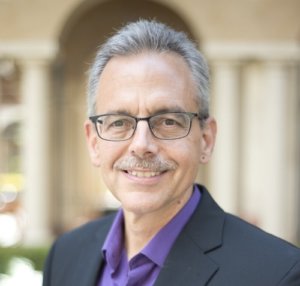Vidya Sethuraman
India Post News Service

The United States is closer to getting the coronavirus pandemic under control. About 46% of all Americans have received at least one coronavirus vaccine shot, according to the Centers for Disease Control and Prevention. The larger proportion of the population that’s vaccinated, the less likelihood that in a season like the coming fall or winter you’re going to see a significant surge,” Dr Anthony Fauci said.
Even if the United States reaches the elusive “herd-immunity,” which is not a given due to vaccine resistance, many communities face crises exacerbated by the pandemic -healthcare and educational disparities, lack of affordable housing, racism, police abuse, loss of jobs. EMS invited two experts for its May 7 briefing to discuss their vision for healing post-pandemic and what will be required to close the growing inequality gaps separating low-income communities of color from the rest of America.
Manuel Pastor, Distinguished Professor of Sociology and American Studies & Ethnicity and Turpanjian Chair in Civil Society and Social Change, University of Southern California said the prospect that Covid-19 has worsened existing inequalities. We knew before the data came out that COVID was going to hit Black and Latino and other communities of color the hardest. Fear and anxiety are further shaped by one’s experience during the pandemic, he added.
It has impacted the immigrant communities at large. Essential workers, largely members of racial minority communities, either lost their jobs or did not have the option of working from home. While the state is improving its efforts to vaccinate more people of color, the initial vaccine programs were ‘deeply flawed.’ Pastor said many of the sites failed to consider essential hourly workers who are largely people of color, residents without internet or smartphones, and families without vehicles. It was a system that was destined to produce vaccine inequity, Pastor said. They need help, especially those families who are impacted by unemployment, and hope that the government can pay attention to the plight of these people and launch assistance measures to help them.
Long-standing inequities in our health care system and distribution of income and employment-based benefits exacerbated these effects, as did vast disparities in the environmental quality of our neighborhoods.

Leslie Johnson, Vice President of Organizational Development at Community Coalition, in South Los Angeles said Racism is the true pandemic. We must call for solutions that are bold, systemic and address root causes and uproot it. In particular, the pandemic has had a huge impact on people in Southern Los Angeles, which has poor living conditions compared to its neighborhood. Johnson said that the ethnic minorities here not only need PPE personal epidemic prevention items for funding and assistance, but also a variety of financial support, including social organizations’ financial assistance, rental assistance, and technical assistance such as Wi-Fi networks. At the same time, more vaccines are needed to control the virus here, so that the economy can restart and improve.
Data shows that COVID-19 disproportionately impacts Black and African American communities in terms of severity, mortality, and economics. These communities are also being vaccinated at disproportionately low rates. Experts urge the administration to ramp up the vaccination efforts. Now is the time for global solidarity and support, especially with the most vulnerable in our societies, particularly in the emerging and developing world. We need to develop long-term sustainable strategies to address the challenges facing the health sector.







